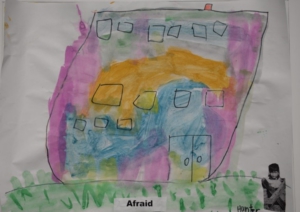Colleen’s Picks….
In September Colleen Devlin shared her wisdom on teaching young children about Residential Schools.
As difficult as this is it is a topic mandated in our curriculum for every grade including kindergarten. It is often hard on the teacher as well so do a pledge of self care before you begin…. Plan a walk on the beach, a coffee treat or a chat with a friend or family member after you have taught lessons on the topic. Do your background work – know which of your children are in foster care or having a difficult time so you know who to keep a special eye on; also do research so you are more prepared (best source https://www.bctf.ca/classroom-resources/details/project-of-heart). Remember this is not ancient history – the last school closed in 1996. This article suggests some great early primary books, art projects, teaching kindness and generosity as another way to scaffold lessons.
We are doing the building blocks of knowledge and scaffolding for further study in the upper grades, five- and six-year-olds need to know that they are loved and people care for them and that this was in the past. Pictured here are the mainstay books I would use when talking with kids.
Amik Loves School is a gentle story as you read it you could say imagine if Elder _____ ( the Ni’noxsola assigned to your school) couldn’t share her culture language or special songs with us because she wasn’t allowed to do when she was at school. For some people this happened as schools like the one in this book. And I would leave it at that unless the class asked more questions. With Shi Shi Etko many pages lead to great stepping stones about ties to the land and rich culture and allow you to invite the children to think of what they would gather from their favourite places, what memories they enjoy with the grand parents or important people in their lives. As Starleigh Grass says we will never understand the richness of what was taken away for seven generations unless we deeply understand the value first nations place on land stewardship and multi generational learning. A brand new book called The Train is a special reflection of those lost as this senior visits a place with important but sad memories of relatives and friends that never came back. It is gentle and full of love despite the topic.
As you can see these are all small little steps and as far as I go. I then let the children take the lead by asking questions – and there may not even be any! Be prepared for some random questions later as kids process. Parents may also have questions refer them to the Truth and Reconciliation website. Doing an art project after these big ideas gives you a chance to circulate and check in on each child. Painting rocks or making orange handprints, making a Heart Garden with each heart bearing a special message to survivors written by each child. The other art idea pictured is inspired by George Littlechild – he has the class brainstorm feelings about going to residential school and being away from family, children then choose a photo to add to their painting – very powerful.
You are probably now thinking “ya but … what if a child asks a tough question…..”
I would say there was a time not so long ago when children from families were taken to go to school and some of those children did not come back. Some of them died in those schools. It was sad and it was awful. But move on and say that s not going to happen now.
Interweaving themes of love and compassion will help the children feel like they can inact change – Monique Gray Smith has beautiful books that help teach about kindness and generosity. Young students know what social justice is – they may be moved to actions like baking cookies for the soup kitchen, making donations to the local food bank ( a powerful way to support survivors and those still dealing with the inter-generational fallout of these schools) – it is through these actions we all bring about changes for our future.
Remember to do your act of self care. Also our Indigenous Education department can suggest further books and lessons for you. I can always be reached by district email.



